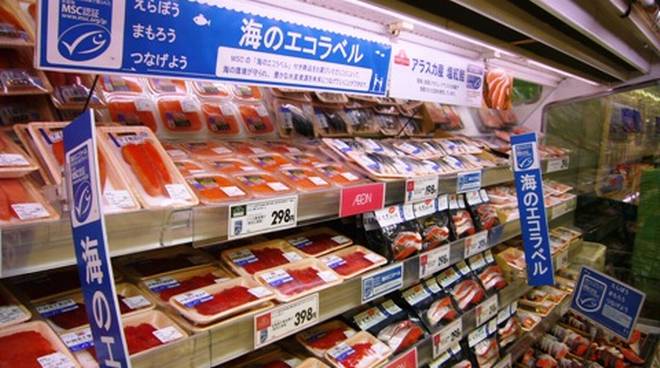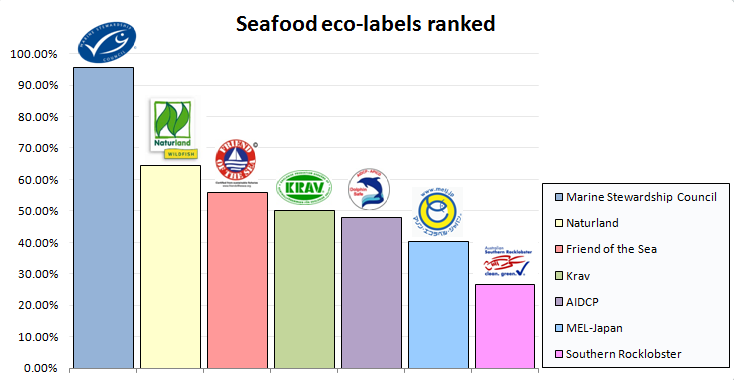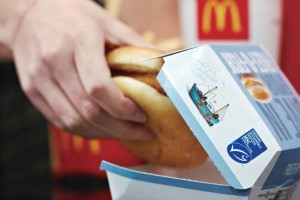Impact of consumer choices on eco-labeled seafood.

In light of the recent election frenzy, I would like to talk about another topic that deserves your attention and vote! Sustainable seafood practices have been the goal of fisheries for some time. Eco-labeling has boomed recently to become one of the key mechanisms to incentivize fishers to fish sustainably for ecological and economic benefits. The idea is to make consumers conscious of the choices they are making when purchasing the evening’s dinner. By being informed and educated on the health of the oceans and fishing practices, consumers are able to “vote with their wallets” and able potentially to create change.

Why it works
Japanese are notorious for being seafood enthusiasts; the per capita consumption of seafood in Japan is around 70 kg, compared to that of the USA which is 21 kg (Gondor and Morimoto 2011). Being biggest seafood market and importer in the world, Japan is an ideal place to look at the effects of eco-labeling. Japanese culture puts social pressures on individuals. Therefore if a consumer is not mindful of the ocean, where being mindful of the ocean is a social norm, the individual will be “shamed”. The Marine Stewardship Council (MSC) has developed programs to increase the awareness of ocean issues from 5% to 23% (Gondor and Morimoto 2011). In March 2014, Japan’s largest retailer (AEON) announced a new set of commitments to aid in ocean sustainability, which included adding more eco-labeled products.
“Consumer education and engagement with sustainable fisheries needs to evolve beyond buying the “right” fish to include demanding that the fishing industry and their government improve fisheries management and retailers only provide sustainable seafood options.”
Gutierrez and Thornton, 2014
Why it doesn’t work
Specifically in Japan, the demand for fish is more directly determined by the characteristics of the cut rather than the price (Gondor and Morimoto 2011). To make policy changes, environmental organizations and governments need to work together to come up with an ecologically and economically sustainable action plan. However, policy makers who feel like they are under attack are less likely to engage in discussions. This has been the biggest problem in Japan since the government has been intensely scrutinized for whaling. Researchers found that with no information on ocean health or no information on the MSC label, consumers were not willing to pay the extra for sustainable seafood (Uchida et al. 2013). Limited knowledge and education of ocean issues has to be addressed more in order to create the baseline for change.

What is next?
With regards to policy making, the World Wildlife Fund (WWF) has taken a non-confrontational approach to the Japanese government in hopes of setting up an effective working relationship. The next steps should be focused on how to broaden the education of the public on how detrimental fishing practices can be, and also what good can come out of practices that are sustainable. Instead of information only focused on “doom and gloom”, I believe that people are more likely to make sustainable choices if they are aware of the positive impact they can have on ocean heath.
Some (fish) food-for-thought for you!
Happy Hump Day,
Sachi
References
Gondor, D., and H. Morimoto. 2011. Role of World Wildlife Fund (WWF) and Marine Stewardship Council (MSC) in seafood eco‐labelling policy in Japan. Sustainability Accounting, Management and Policy Journal Sustainability:214–230.
Gutierrez, A., and T. Thornton. 2014. Can Consumers Understand Sustainability through Seafood Eco-Labels? A U.S. and UK Case Study. sustainability:8195–8217.
Ishii, K. (n.d.). The MSC in Japan and Future Perspective. Available at http://seafoodchoices.com/seafoodsummit/documents/ishiik.pdf (accessed 2015)
Uchida, H., C. A. Roheim, H. Wakamatsu, and C. M. Anderson. 2013. Do Japanese consumers care about sustainable fisheries? Evidence from an auction of ecolabelled seafood. Australian Journal of Agricultural and Resource Economics Aust J Agric Resour Econ:263–280.